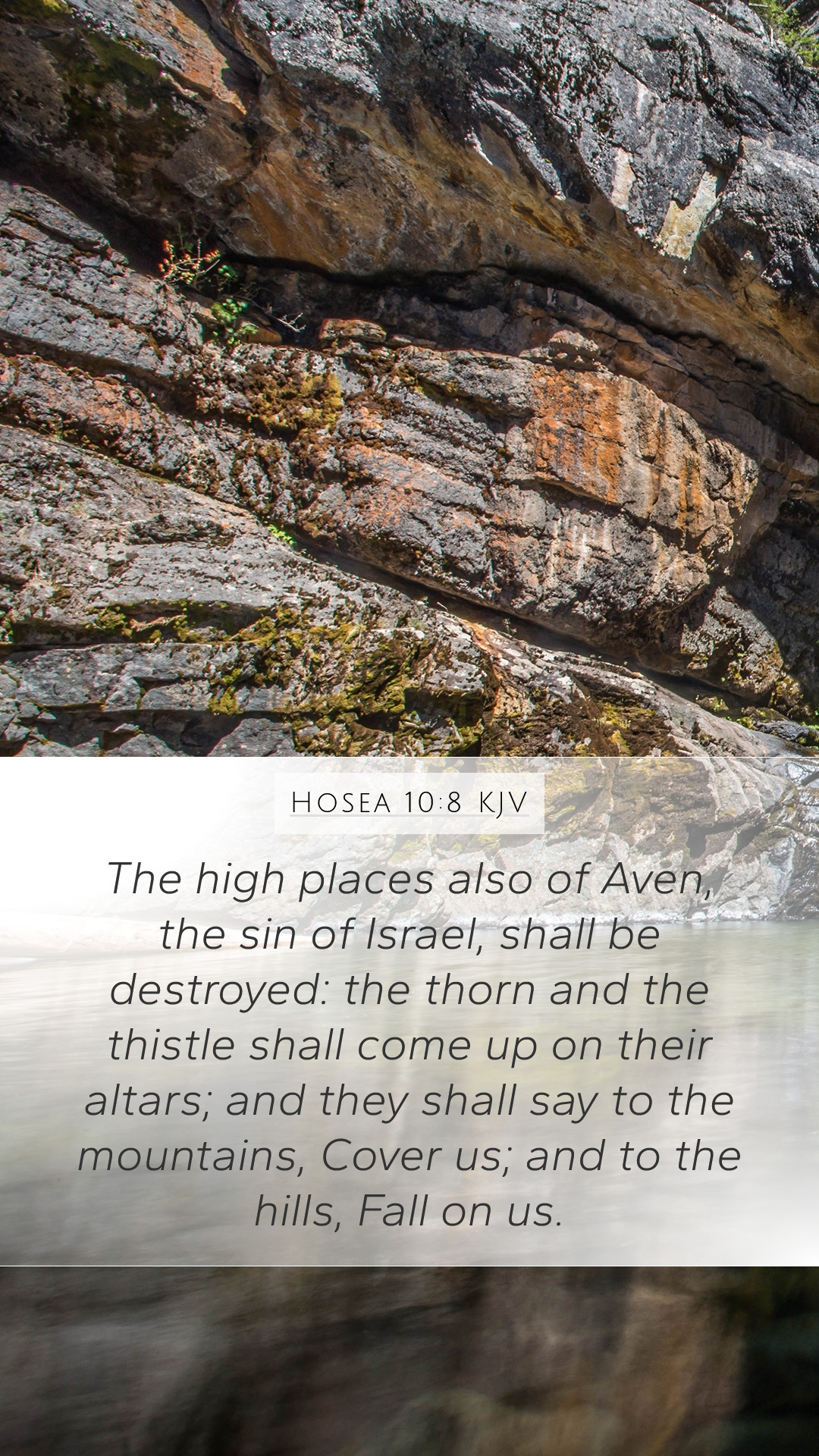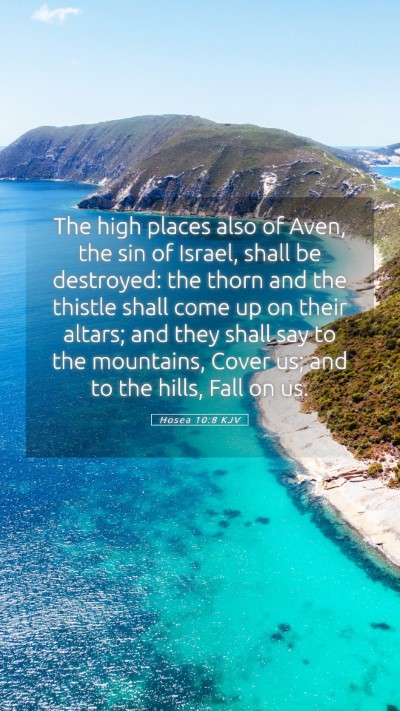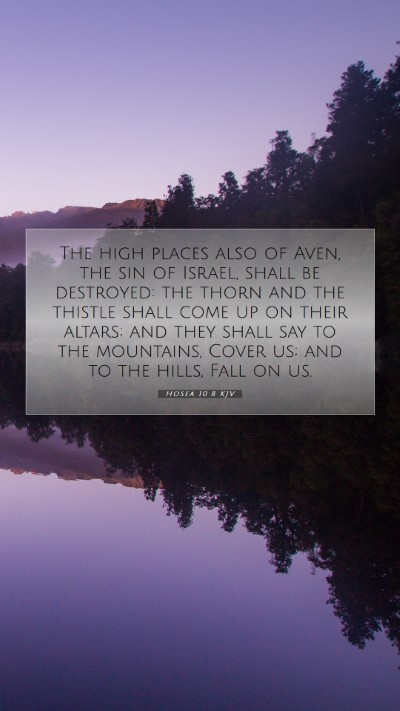Old Testament
Genesis Exodus Leviticus Numbers Deuteronomy Joshua Judges Ruth 1 Samuel 2 Samuel 1 Kings 2 Kings 1 Chronicles 2 Chronicles Ezra Nehemiah Esther Job Psalms Proverbs Ecclesiastes Song of Solomon Isaiah Jeremiah Lamentations Ezekiel Daniel Hosea Joel Amos Obadiah Jonah Micah Nahum Habakkuk Zephaniah Haggai Zechariah MalachiHosea 10:8 Meaning
What is the meaning of Hosea 10:8?
The high places also of Aven, the sin of Israel, shall be destroyed: the thorn and the thistle shall come up on their altars; and they shall say to the mountains, Cover us; and to the hills, Fall on us.
Hosea 10:8 Bible Verse Meaning
Understanding Hosea 10:8: A Comprehensive Bible Verse Commentary
The Bible verse Hosea 10:8 states: "The high places also of Aven, the sin of Israel, shall be destroyed: the thorn and the thistle shall come up on their altars; and they shall say to the mountains, Cover us; and to the hills, Fall on us." This verse, deeply rooted in prophetic warning, serves as a powerful reminder of the consequences of idolatry and rebellion against God. Below, we delve into a summary of insights from public domain commentaries to provide an enriched understanding of this scripture.
Bible Verse Meanings and Interpretations
Hosea, a prophet in the Old Testament, issues a call for repentance and exposes the sins of the Israelites, particularly their worship in high places. The phrase "the high places of Aven" refers to the sites of idol worship, which were seen as abominations to God. Let's explore the core meanings derived from esteemed commentaries:
-
Matthew Henry:
Henry emphasizes the destruction of idolatry, portraying it as a direct affront to God’s holiness. The high places where sin was committed would be brought low, leading to the inevitable downfall of their religious practices.
-
Albert Barnes:
Barnes notes the specific mention of thorns and thistles as symbols of desolation that would replace the altars of idolatry, indicating a complete reversal of fortune for the unrepentant. This imagery presents the sterility that follows a life of sin.
-
Adam Clarke:
Clarke discusses the psychological aspect where, in their despair, people would turn to nature—calling upon mountains to hide them from the judgment of God. This showcases humanity’s tendency to seek solace in creation rather than the Creator.
Expounding the Verse Through Biblical Exegesis
This verse can be examined within a broader scriptural context:
-
Idolatry and Its Consequences:
Hosea often highlights the link between Israel’s prosperity and their faithfulness to God. The warning here signifies a return to the emptiness that idolatry brings.
-
Call to Repentance:
The destruction foretold is not just punitive but serves as a call for the people to return to genuine worship, shedding their reliance on false gods.
Applying the Teachings of Hosea 10:8
The message of Hosea 10:8 remains relevant today, prompting believers to evaluate their lives for modern-day idols, which can manifest in various forms such as materialism, relationships, and self-reliance.
Cross References for Deeper Understanding
For further study, you may consider these related Bible verses:
- Luke 23:30: Reflects on the desire to hide from judgment.
- Revelation 6:16: Similar imagery of people calling to the mountains and hills.
- Jeremiah 7:31: Addresses the consequences of idol worship.
Conclusion: Lessons from Hosea 10:8
Hosea 10:8 articulates a profound warning against the consequences of turning away from God. Through the combined insights from Matthew Henry, Albert Barnes, and Adam Clarke, we grasp the full weight of idolatry's devastation and the call to return to true worship. This verse not only offers understanding of ancient Israel’s failings but serves as a timeless reminder for personal introspection in our spiritual journeys.
As you explore the Bible verse meanings, keep in mind that each scripture invites us into a deeper relationship with God. Engaging in Bible study groups, utilizing Bible study resources, and participating in online Bible study can significantly enhance your understanding of Scripture.


